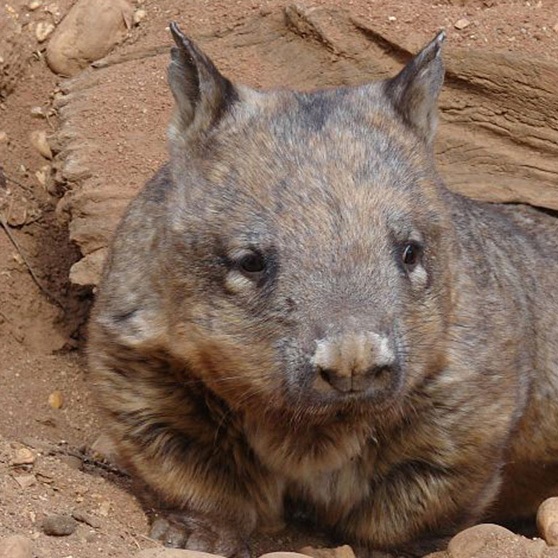Care & Facts
Northern Hairy Nosed Wombats
The northern hairy nosed wombat is the largest of the three wombat species and is the largest herbivorous burrowing mammal in the world! Sadly, it is one of the world’s most critically endangered species with only about 250 northern hairy nosed wombats in the wild.
What to do if you come across an injured wombat
We know it can be extremely upsetting and sometimes daunting to come across injured wildlife. However, knowing what to do can potentially save a life.
Should you come across a dead or injured wombat, there are several things you can do.
What to do if you rescue an orphaned wombat
Should you come across an orphaned wombat, the first thing to do is contact a registered carer. However, on the rare occasion a wombat comes into your care for a short period of time, there are a few things you can do to ensure it survives.
Wombat populations on the decline
The Australian Wildlife Protection Council talk to some of the facts surrounding the depleting populations of wombats.
You can read more via the link below.
Bare nosed wombats
Find out what our furry friends eat, where they live, how they live with other wombats and how they raise their young.
Did you know Wombats have square-shaped poo!
Find out some very interesting facts about wombats. Like how fast they run and what their favourite food is. There is so much more to a wombat than square poo!
Wildlife sanctuary owner Ray Wynan inspects the burrow of a wombat that escaped logging. Photograph: The Sydney Morning Herald
Changing Attitudes in Forestry
Working with the Forestry Corporation of NSW, WPSA helped to develop guidelines and protocols for the protection of wombats in the Glenbog State Forest.
WPSA spearhead many initiatives for the protection of wombats, this is one such story of changing attitudes within the logging industry. You can read all about it by clicking the button below and you can review the new guidelines by clicking here.
Photo: Kalyob/Wikimedia
Southern Hairy Nosed Wombats
Today, the southern hairy nosed wombat is listed as near threatened with populations being fragmented. They are the smallest of the three wombat species and look most like their northern hairy nosed cousin.
We’re losing our australian diggers!
Six of the 29 digging mammals that were present 200 years ago, are now extinct. This is greatly impacting Australia’s ecosystems.
Learn how wombats and other diggers help our environment and improve the health of our soil.
Born to be Wild
Wombats may look cute and cuddly but the fact is they should never be pets. Learn about their behaviours as they grow.
A wombat’s range
See where you can find wombats today and where they use to roam in this simple infographic.












